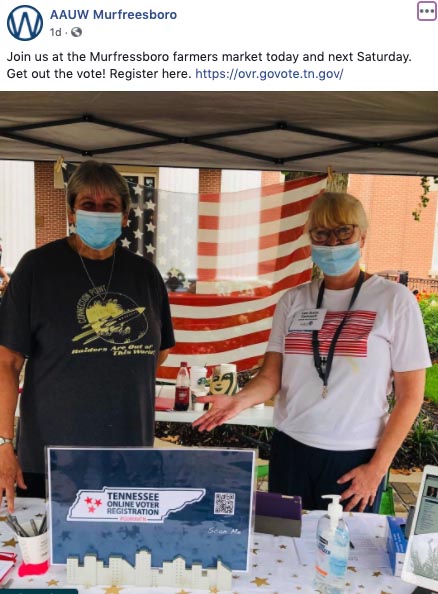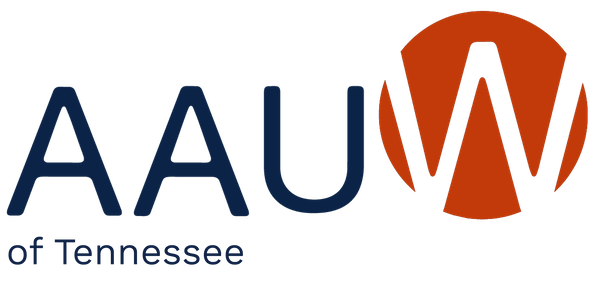Murfreesboro branch set up a booth at their local Farmer’s market to help register voters ~

Murfreesboro AAUW doing registering voters outdoors, while social distancing and using masks to keep everyone as safe as possible!
If in person registration does not feel like a safe option for your branch, send an email to members and friends with links to online registration.
EARLY VOTING SCHEDULES
Davidson county has already published their Early Voting Schedule for November – a quick google search will help you find the early voting schedule for your county.
